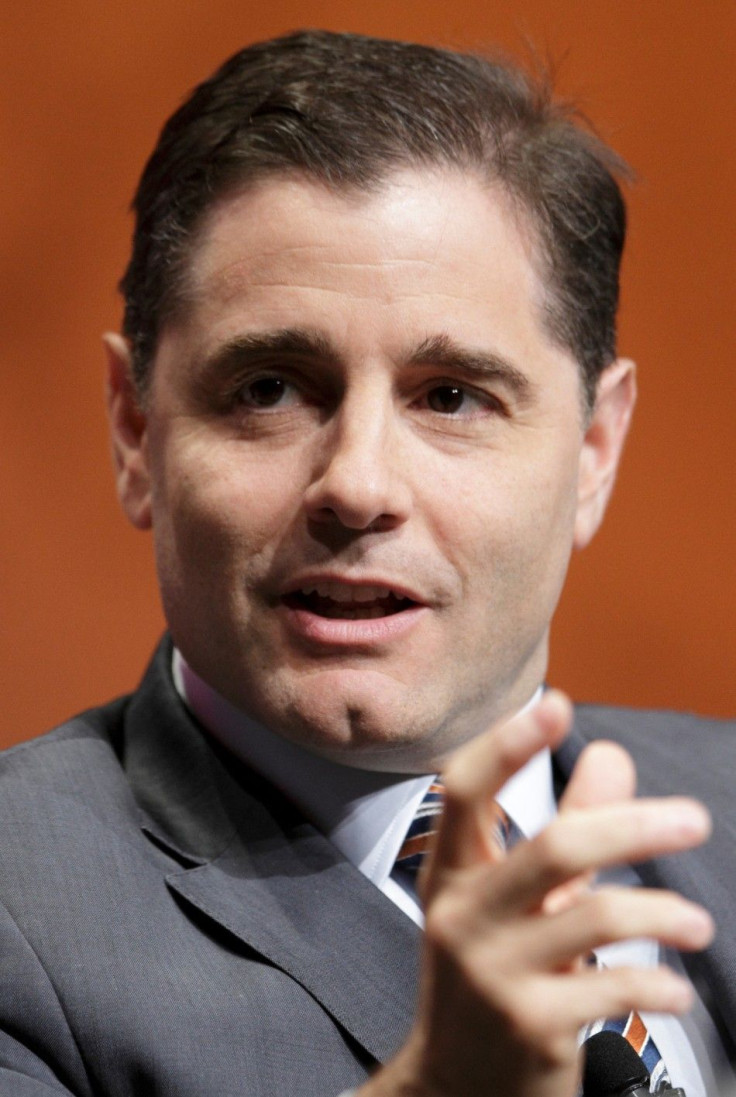FCC Chairman Opposes AT&T, T-Mobile Merger

The chairman of the Federal Communications Commission, Julius Genachowski, has opposed the $39 billion takeover between AT&T and T-Mobile USA, putting into question the fate of the merger.
The chairman is calling for an administrative hearing regarding the proposed $39 billion transaction, and other members of the commission are expected to agree with the chairman.In the administrative hearing, the burden of proof would be placed on AT&T and T-Mobile to show the deal still maintains a healthy amount of competition.
The U.S. Department of Justice has also filed a lawsuit to block the merger. The trial is set to begin Feb. 13. Furthermore, Sprint Nextel, the third largest wireless carrier in the U.S., and regional carrier C Spire Wireless have also filed separate lawsuits against the deal.
AT&T is the second largest wireless carrier behind Verizon Wireless. T-Mobile USA, a subsidiary of Deutsch Telekom, is the fourth largest wireless carrier. Opponents of the merger claim the merger would consolidate too much of the wireless market share to AT&T, leading to higher prices and weaker services for consumers.
The news regarding an administrative hearing broke Monday, although the FCC didn't publicly confirm the news.
The FCC's action today is disappointing, Larry Solomon, senior vice president of corporate communications at AT&T, said in a statement yesterday. It is yet another example of a government agency acting to prevent billions in new investment and the creation of many thousands of new jobs at a time when the U.S. economy desperately needs both.
The Communication Workers of America, the largest union representing AT&T employees, also came out against the FCC decision. The union has argued the merger would create up to 100,000 jobs as the combined company works to improve its wireless network.
The action by the Federal Communications Commission on the AT&T/T-Mobile merger is a job killer at a time of 9 percent unemployment, CWA said in a statement.
The FCC's decision relegates the issue of good jobs to the bottom of the government's priorities, the statement continued.
The FCC, Justice Department, and other groups opposed to the merger have expressed skepticism about the job claims, considering jobs are usually cut following a merger.
The market share in the wireless business used to be more spread out, independent telecommunications analyst Jeff Kagan told IBTimes. However, since other telecommunications mergers have been approved easily, the wireless industry has become consolidated.
The government now has to be careful about who it says yes to, added Kagan.
The last time a merger faced an administrative hearing like this was in 2002 with the proposed merger between EchoStar and DirecTV. The deal was eventually dropped.
Kagan said what will happen next is unclear, although he doesn't expect AT&T to give up.
AT&T wants this badly and will do anything it can to get this approved, he said. It can get dirty before the final bell is rung.
Shares of AT&T are down 1.78 percent to $27.58 in late morning trading.
© Copyright IBTimes 2025. All rights reserved.





















